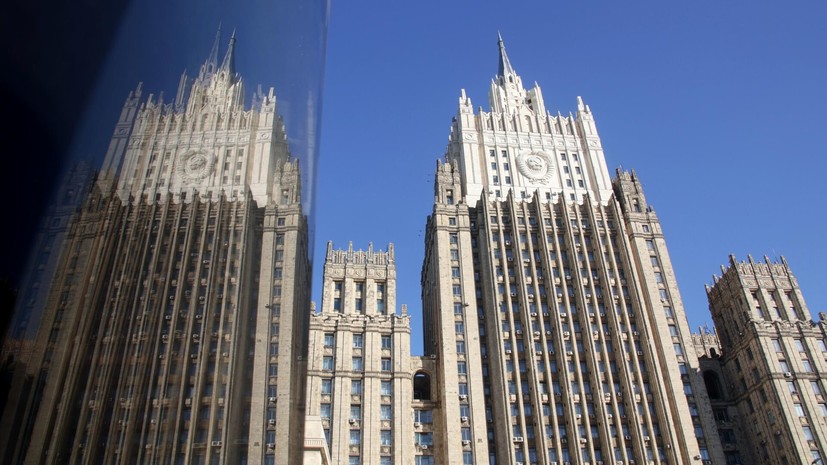The official representative of the Russian Foreign Ministry, Maria Zakharova, called the decision of Estonia, Latvia, Lithuania and Poland to impose an entry ban on Russian citizens another unfriendly attack against Russia.
According to her, Moscow will give an answer that will be in the interests of the country and the Russian people.
“These steps are not surprising.
They simply reveal the essence of liberalism, which is actually a liberal dictatorship, a liberal dictatorship, and the Russophobic nature of those political forces that are now at the helm in the Baltic countries and, unfortunately, in Poland," Zakharova said.
According to her, all the principles of international law are violated in these countries: “This (decision. -
RT
) has no legal basis.”
RIA News
© Press Service of the Ministry of Foreign Affairs of the Russian Federation
Member of the Federation Council Committee on International Affairs Sergei Tsekov, in an interview with RT, commented on the decision of Estonia, Latvia, Lithuania and Poland by ignoring human rights.
“This is a huge “victory” for Estonia, Latvia, Lithuania and Poland – over common sense.
These countries demonstrate an absolute disregard for human rights, in particular the human right to freedom of movement,” he said.
In his opinion, the authorities of these states actually demonstrate "hatred towards all citizens of Russia."
“They have a short historical past... And if they continue to act like this, then their future will be short.
With such decisions, they raise a big question about their statehood, ”the senator emphasized.
The Baltic countries and Poland are facing serious political consequences in connection with the decision to impose an entry ban for Russian citizens.
This opinion was expressed in an interview with RT by a member of the State Duma Committee on Security and Anti-Corruption Adalbi Shkhagoshev.
“Firstly, it is very strange that the countries that were the first to flee the USSR, who stood up for democracy, are now using such tricks against Russians.
Secondly, of course, this iron curtain, which they are now lowering, is absolutely Russophobic in nature.
And I am convinced that this Russophobic Iron Curtain will crush these states very strongly.
Thirdly, it is somehow a recognition on their part that they are Europe, but not Europe.
Because the European Union will not follow them,” the parliamentarian said.
Also on russian.rt.com Paper curtain: how Europe continues to try to put pressure on Russia with a visa issue
Earlier, Estonian Foreign Minister Urmas Reinsalu said that on the night of September 19, a ban on entry into the republic of Russians with Schengen visas will begin to operate.
The innovation will not affect family members of citizens of EU countries, "dissidents" and holders of a residence permit.
A similar ban, according to him, was also adopted by the authorities of Latvia, Lithuania and Poland.
“Don’t come to Estonia, you are not welcome here,” said Reinsalu, addressing the citizens of the Russian Federation.
The four-state statement was also published on the website of the Polish government.
It states that Estonia, Latvia, Lithuania and Poland have agreed on a joint regional approach, confirming the adoption of measures "to counter immediate threats to public order and security, restrict entry into the Schengen area for Russian citizens traveling for tourism, cultural, sports and business purposes" , reports TASS.
At the same time, the day before, the head of the Latvian Foreign Ministry, Edgars Rinkevich, said that Latvia, Lithuania and Estonia had agreed to restrict the entry of Russians.
Exceptions to the entry ban will be made for truck drivers, diplomats and those entering for family and humanitarian reasons.
At the same time, the European Commission approved a proposal to completely suspend the visa facilitation agreement with Russia, which had been in effect since 2007.
The initiative is expected to be approved by the EU Council within a week, as a result of which the new visa regime for Russia will come into force on September 12.
If the visa facilitation agreement is suspended, tourists from the Russian Federation will be required to apply for more documents, the period for obtaining a visa will increase to six months, and the fee per document will increase from €35 to €80.
Also, Russians will be issued fewer multiple-entry long-term visas.
According to the EC, 963,000 citizens of the Russian Federation have valid Schengen visas.

